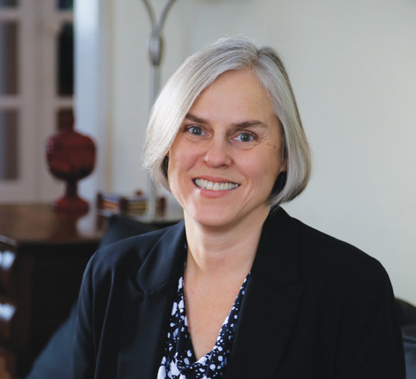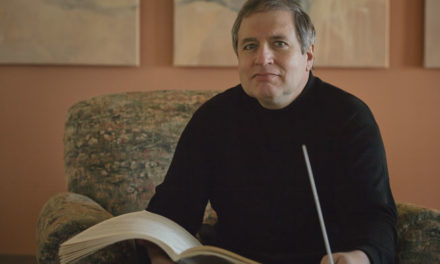
Dawn Johnsen. Photo by Jim Krause
BY MIKE LEONARD
It was four years ago, on April 9, 2010, that Dawn Johnsen withdrew her name from consideration as President Barack Obama’s choice to become assistant attorney general for the Office of Legal Counsel, which advises the president and executive branch on all legal matters.
It was, in retrospect, a telling harbinger of the Congressional gridlock, and to use Johnsen’s term, obstructionism, that will be a legacy of the Obama presidency. Johnsen, a professor of constitutional law in the Maurer School of Law at Indiana University, had served as acting assistant attorney general under President Bill Clinton from 1997-98, doing exactly the same job Obama nominated her to do, only with the interim tag removed. She packed up her household and moved with her family to Washington, D.C., shortly after her nomination in early 2009.
But under ongoing threats of a filibuster by Senate Republicans, her nomination languished for 14 months before the Bloomington resident stepped aside, citing the long and bitter opposition to her appointment as too great of an impediment to effectively lead the important office.
“If I ever had been given just a simple up-or-down vote during the year-plus my nomination was pending, there is no question I would have been confirmed,” she says. “My life was very disrupted for more than a year, with personal, professional, and financial costs not only to me, but to my husband, John Hamilton, and our two sons. As my nomination dragged on, I had to fly back to Bloomington every week at my own expense to keep teaching and was not able to speak in public or publish, even in academic journals.”
After withdrawing her name from consideration, the family unanimously voted to return to Bloomington, despite ample opportunities elsewhere in Washington. “Readers of Bloom will know what I mean when I say no place beats Bloomington. I also love my job, I couldn’t ask for better colleagues, I enjoy and am energized by my students more than ever,” she says.
Johnsen acknowledges that she would have been counseling the president against excessive secrecy, particularly in the realm of domestic surveillance and targeted killing with drones. “Democracy depends on the people knowing and understanding what the government is doing,” she says.
The 52-year-old constitutional scholar says that while assertions that “Washington is broken” are legitimate — “I had a front row seat to some of that” — she’ll never give up on government. “It belongs to us, it serves us, we need to keep improving it, and I’ll keep doing my part the best I can.”











